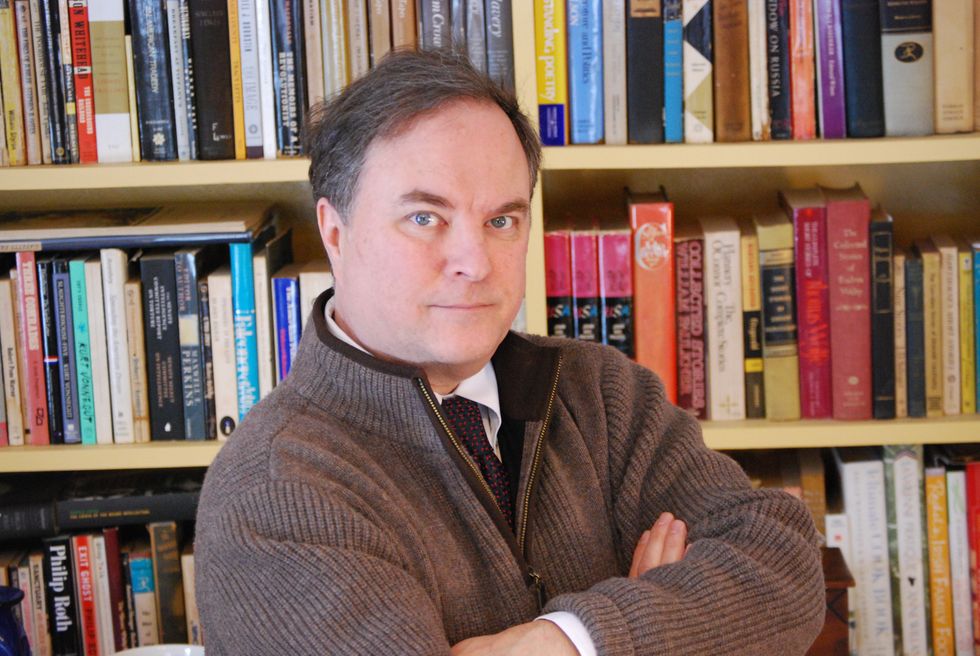
Latest News
Frederick Wright Hosterman
Apr 30, 2025
KENT — Frederick Wright Hosterman passed away peacefully in his home in Kent on April 16, 2025. Born in 1929 in Auburn, Nebraska, he was the son of farmers. He attended a one-room schoolhouse just outside of Brownville, Nebraska, adjacent to his family’s farm. The little brick schoolhouse is still standing! After graduating from high school, Fred attended the University of Nebraska (Lincoln), eventually earning a master’s degree in agronomy. He took a job with Monsanto in Buffalo, New York, where the company was a pioneer in applying biotechnology to agricultural sciences. In Buffalo, Fred met his future wife, Dorothy. Fred and Dorothy moved to New York City for several years in the early 1960s, before settling down in Norwalk. In Norwalk, Fred and Dorothy had three children. The family later moved to Kent. In 1980, Fred and Dorothy divorced, and Fred bought a large tract of land on Carter Road in Kent. He built a house there, largely by himself, which he maintained until his death at age 95. After taking early retirement, he spent the following decades working on his property, adding various buildings, woodcrafting, landscaping, and spending time with his children and grandchildren.
Fred had a jovial and close relationship with many of his neighbors, who he saw daily, all willing to share a cup of coffee or receive various bits of wisdom from Fred on any number of projects.
Fred was predeceased by his parents; Helen and Arch Hosterman, step-mother Cassie Hosterman, sisters Ruth and Esther Marie, brother Richard, and former wife Dorothy. He is survived by his three children and their spouses; John and his husband Eric of Northfield, Minnesota, Tracy and her partner, Sam, of Amenia, New York, and Catherine and her husband, Josh, of Cornwall. He is also survived by his five grandchildren; Nicky, Dan, Ian, Zachary, and Eliza, and several nieces and nephews.
Fred loved to flirt with the ladies, even in his 90s, doing a little “dance” for almost anyone he met. Another of Fred’s favorite hobbies was chopping down trees on his land. Initially, this started out as a necessity for fueling his wood stoves. Later, tree-clearing projects were aimed at enhancing the magnificent view from his house high atop Carter Road. Even at age 95, Fred was frequently on his excavator moving boulders or building a retaining wall, as he was strong, healthy and witty until his final weeks.
Keep ReadingShow less
Nancy (Case) Brenner
Apr 30, 2025
CANAAN — Nancy (Case) Brenner, 81, of Canaan, passed away peacefully in her sleep at Charlotte Hungerford Hospital in Torrington, following a long illness on Good Friday, April 18, 2025.
Nancy was born on April 10, 1944, to the late Ray Sargeant Case Sr. and Beatrice Southey Case. She was the second youngest of five children, predeceased by her three brothers, Ray S. Case Jr., David E. Case and Douglas C. Case, and her sister Linda (Case) Olson. She grew up in New Hartford and Winsted, where she graduated from Northwestern Regional 7 High School.
Nancy is predeceased by her husband and the love of her life, Thomas E. Brenner. Often nicknamed “the love birds,” they were true soulmates and shared many wonderful years together filled with love, laughter, travel and family. Nancy is also survived by 11 nieces and nephews whom she loved dearly — Lori, Richard, Kathleen, Kevin, Debbie, Karen, Carrie, Jennifer, Tom, Scott and Kimberlee. She was a special aunt leaving behind so many happy and joyful memories. She never missed attending her nieces’ and nephews’ special events.
Nancy worked for over 20 years at Raynard and Pierce in Canaan. There she made many friendships and brightened the day of everyone who went through the door greeted by her smile and jovial spirit. Nancy was a loving wife, daughter, aunt and friend and will be missed by all who’s lives she touched.
A graveside service will be held at Collinsville Cemetery on Huckleberry Hill Road in Canton on Saturday, May 3, 2025 at 11 a.m. followed by a reception at 5 Cherry Brook Road, Canton. Memorial donations may be made in Nancy’s name to the Berkshire Humane Society, 214 Barker Road, Pittsfield, MA 012011, where Nancy adopted her loving cat and faithful companion, Dusty.
Keep ReadingShow less
Adam Rand
Apr 30, 2025
SHEFFIELD — Adam Rand, 59, of Sheffield, Massachusetts, passed away peacefully in his home on April 22, 2025, after a long battle with ALS.
Adam was born on April 6, 1966, to Lee and Charles Rand II of Boston, Massachusetts. Adam spent his early childhood in Nantucket, where his love of fishing and water was born before moving to Sharon. It was here where he made many lifelong friends and later graduated from Housatonic Valley Regional High School in 1984. He attended Hiram College in Ohio before settling in Connecticut.
Adam was a master of all trades, a seasoned contractor and practiced carpenter. He was always eager to learn and became a skilled woodworker in his later years of life. His work ethic was undeniable. Adam was passionate about his family, his work and anything with an engine.
Adam leaves behind his loving wife, Annie Rand, his children, Samantha Rand (Nantucket) and Jack Rand (Canaan), his brother and sister in-law, Greg and Cindy Rand (Nantucket), and their children, Olivia, Maxwell and Samuel Rand (Boston), as well as the mother of his children and former wife, Nancy Rand (Collinsville)
Services will be held for immediate family only. In lieu of flowers, please consider a donation to: Compassionate Care ALS, PO Box 1052, West Falmouth, MA 02574. Or Online at ccals.org
Keep ReadingShow less
loading












